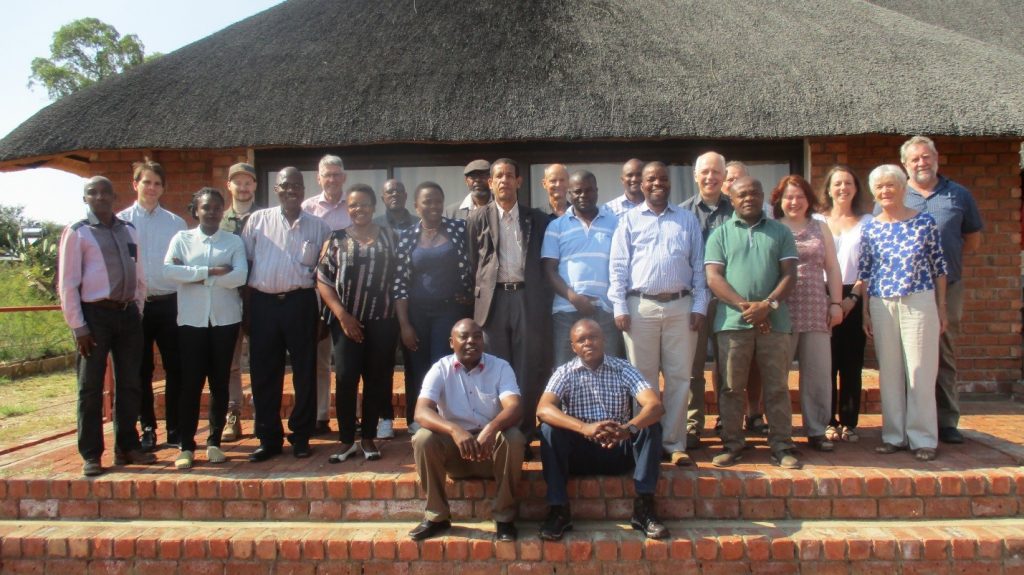There are currently 20 SASSCAL research tasks focusing on assessments to understand the impact of land use on the environment under changing climatic conditions. The aim is to identify the resulting challenges and to gain insight through applied research in order to mitigate the negative effects and to find solutions that can be applied by farmers and stakeholders to better adapt to resultant environmental and socio-economic changes. Capacity development initiatives, including academic education and stakeholder training, are embedded as in integral part of the research tasks.
A 3-day technical workshop with 25 scientists representing Angola, Botswana, Namibia, South Africa and Germany who are sponsors, was held in Windhoek from 4 to 6 April 2017 to ensure an effective output of regional relevance with impact for SASSCAL stakeholders and to elaborate on the potential for synthesising the scientific research data, discuss options for joint publications and decision support for policy makers and farmers, and to identify potential future research topics based on the information gained.
Four research topics were focussed on, namely (i) farm management and crops, dealing with quantifying the effects of different management types on yield and seed production; (ii) N-fixation through rhizobia, focussing on the use of legumes and associated bacteria to increase soil fertility and yields; (iii) rangelands, considering the utilisation of rangelands as source for forage (game and cattle production) and mitigating problems such as bush encroachment, soil degradation, erosion, as well as the impact of fire as a management tool; and (iv) socio-economic challenges, dealing with human-wildlife conflict and the challenge to households of land use patterns in buffer zones of conservation areas.
Working groups created protocols and timelines for joint publications in terms of data harmonisation and explored the potential for decision support in each of the themes. An important output of the workshop was the development of several integrated overarching research questions for consideration under a further phase of the SASSCAL research portfolio.

Agriculture Workshop Participants




